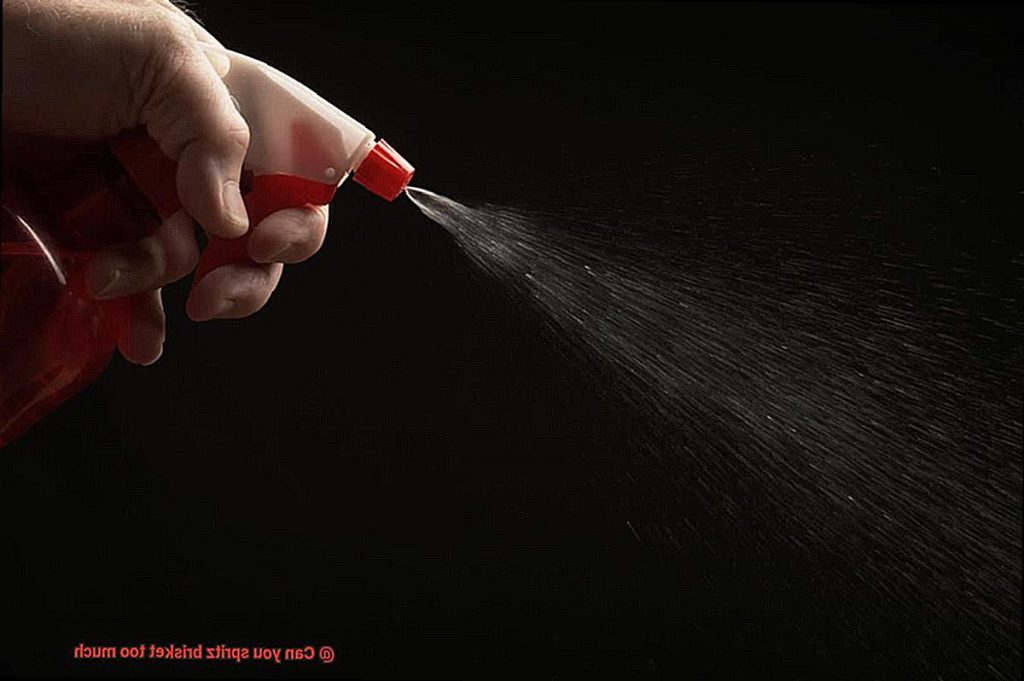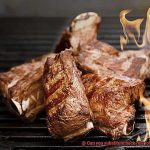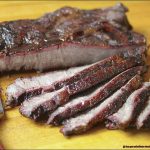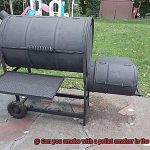Picture this: the smoky aroma of perfectly smoked brisket wafts through the air, teasing your senses and igniting your taste buds. For barbecue enthusiasts, achieving that flawlessly cooked slab of brisket is like conquering Mount Everest – a feat that requires skill, precision, and a touch of culinary magic. From mastering the art of low-and-slow cooking to perfecting the delicate balance of spices, there are countless variables that contribute to creating that coveted melt-in-your-mouth deliciousness.
But amidst our relentless pursuit of barbecue perfection, a lingering question emerges from the hickory-scented haze: can you spritz brisket too much? While spritzing your brisket with a carefully concocted blend may seem like an infallible way to keep it moist and tender, it turns out that excessive spritzing might not be the holy grail we once believed it to be.
So join me on this flavorful journey as we delve into the intriguing world of over-spritzing brisket. Together, we’ll separate fact from fiction, uncover potential pitfalls, and discover if you’ve been misting your way towards brisket disappointment. Grab your tongs, stoke the fire, and let’s dive deep into this saucy debate.
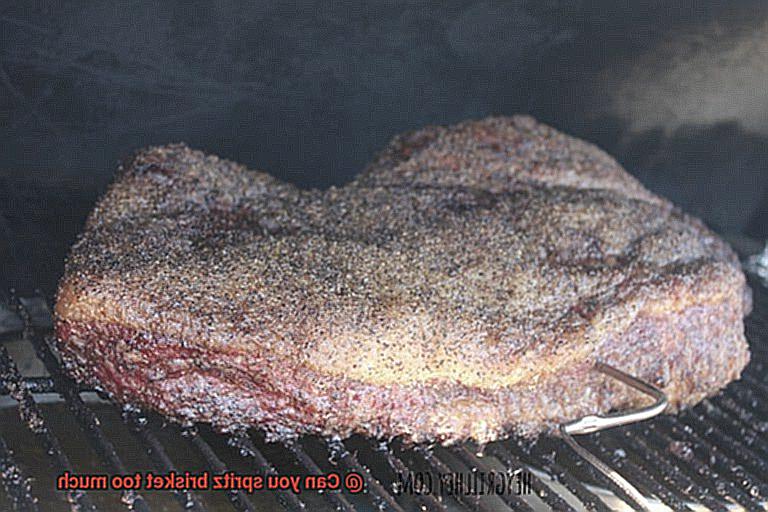
Contents
What is Spritzing Brisket?
Achieving barbecue perfection requires a delicate balance of moistness and flavor. Enter spritzing, the technique that can take your brisket to new heights. In this article, we will delve into the world of spritzing brisket, uncovering its secrets and guiding you towards mastering this essential grilling technique.
Retaining Moisture:
Spritzing brisket serves as a guardian of moisture throughout the cooking process. As the brisket cooks, it naturally loses moisture, which can result in a dry and tough final product. Spritzing creates a protective layer on the meat’s surface, reducing evaporation and preserving its natural juices.
Enhancing Flavor:
Spritzing not only keeps the brisket moist but also infuses it with additional layers of flavor. The liquid used for spritzing, such as apple juice, vinegar, or Worcestershire sauce, adds depth and complexity to the taste of the meat. These flavors penetrate the brisket during cooking, culminating in a tantalizing experience for your taste buds.
The Perfect Spritzing Frequency:
Determining how often to spritz your brisket is a crucial consideration. Pitmasters vary in their approaches, with some opting for a spritz every 30 minutes while others adjust based on personal preference and recipe requirements. Keeping a watchful eye on the meat’s appearance and texture throughout the cooking process will guide you in achieving the ideal balance between moisture retention and bark development.
Avoiding Over-Spritzing:
While spritzing can elevate your brisket game, it is essential not to go overboard. Excessive spritzing can lead to a soggy texture and dilute the natural flavors of the meat. Moderation is key; start conservatively and make adjustments as needed to achieve your desired outcome.
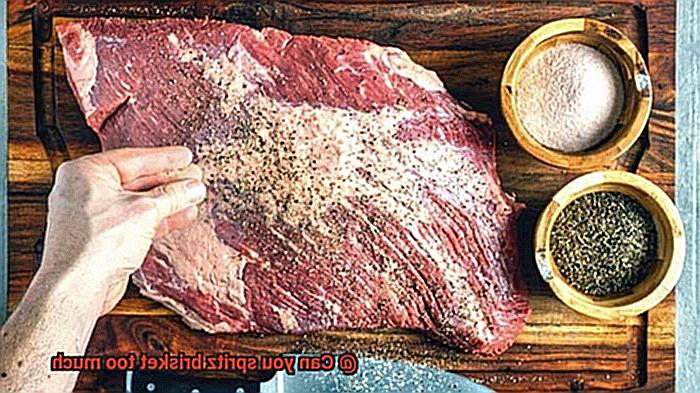
Choosing the Perfect Spritzing Liquid:
Water, vinegar, and apple juice are popular choices for spritzing liquids. However, don’t be afraid to unleash your creativity by experimenting with beer, whiskey, or other flavorful liquids to add a unique twist. Just remember to exercise restraint to prevent overpowering the natural flavors of the meat.
What is the Impact of Excessive Spritzing on Moisture Content?
Grilling a brisket to perfection is an art form that requires meticulous attention to detail. One technique that can make or break your brisket is spritzing. While spritzing can add moisture and flavor to your meat, excessive spritzing can have detrimental effects on both the taste and texture of your prized brisket. In this guide, we will delve into the impact of excessive spritzing on moisture content and provide invaluable tips on finding the ideal balance to achieve barbecue excellence.
Dilution of Natural Juices:
Excessive spritzing can dilute the natural juices present in the brisket, resulting in a dryer and less flavorful end result. When you spritz too frequently or with an excess of liquid, you risk washing away those succulent juices that have developed during the cooking process. Remember, it’s all about retaining and enhancing those natural flavors.
Hindering Crust Formation:
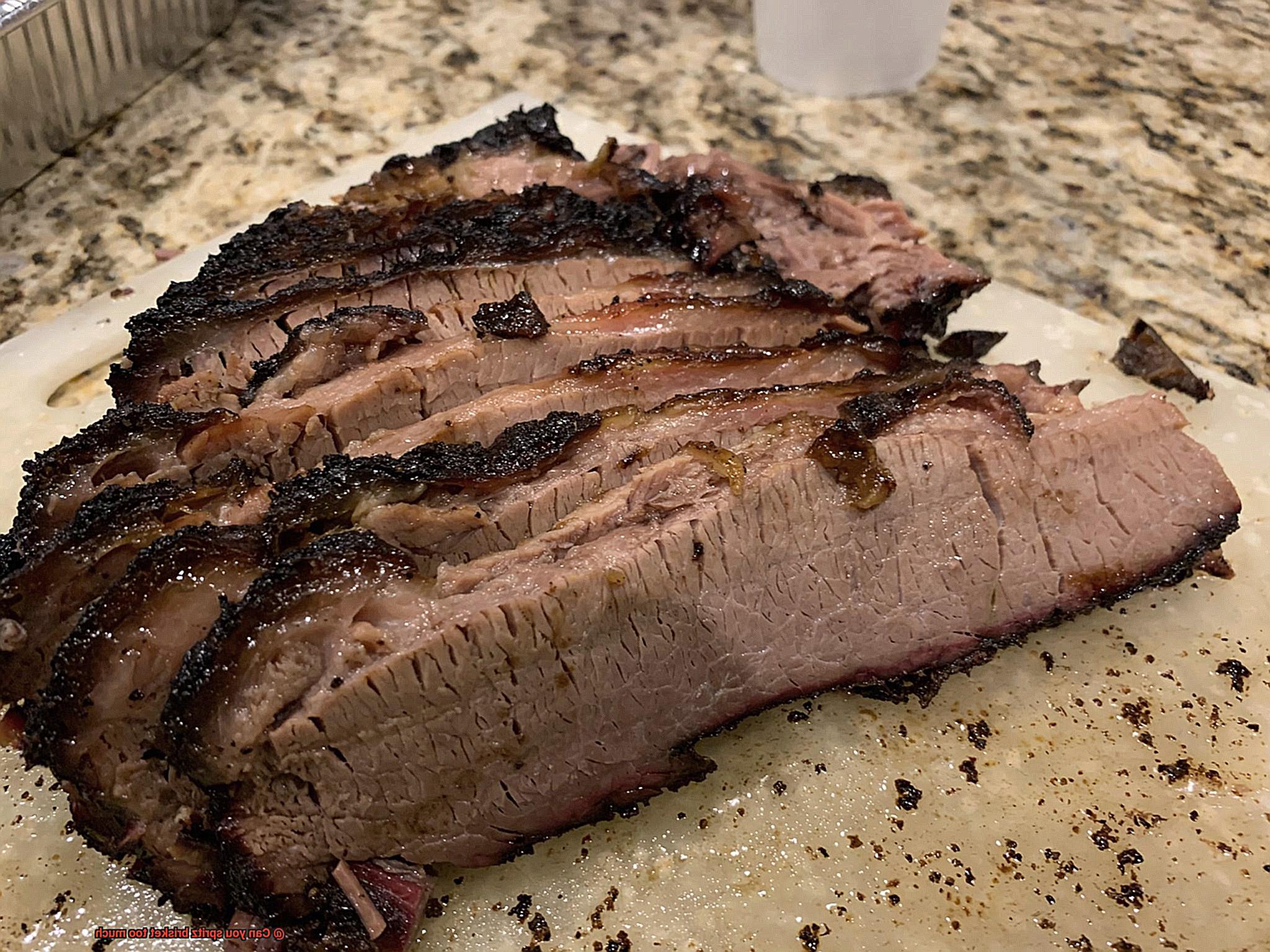
The formation of a desirable crust, also known as bark, is a pivotal aspect of mouthwatering brisket. However, excessive spritzing can create a barrier on the surface of the meat, impeding proper bark development. This can lead to a less desirable texture and taste. So, exercise caution when spritzing to ensure the formation of that beautiful crust.
Uneven Cooking:
Consistently opening the grill or smoker to spritz can disrupt the cooking environment by releasing heat and smoke. This can result in temperature fluctuations and uneven cooking of your brisket. Picture some parts being overcooked or dry while others remain undercooked – definitely not an ideal outcome. To prevent this, minimize the number of times you open your grill during the cooking process.
Prolonged Cooking Time:
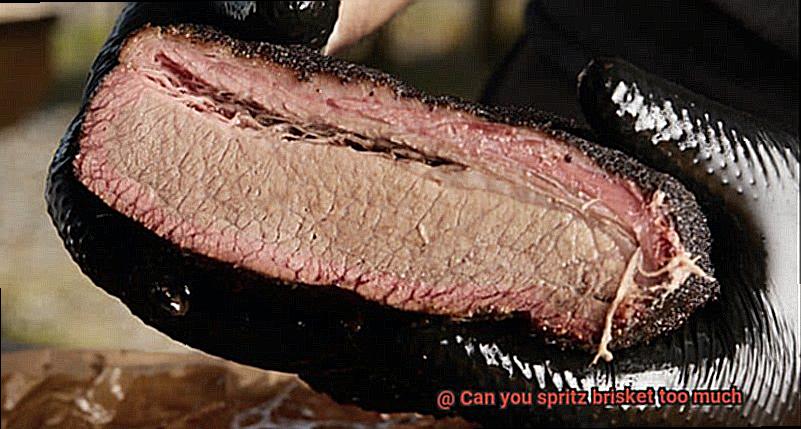
Each time you open your grill or smoker to spritz, you allow heat to escape, which can prolong the overall cooking time. This may lead to a drier brisket as it spends more time on the grill. So, embrace patience and resist the temptation to spritz too often – your patience will be rewarded with a juicy, tender brisket.
How Does Spritzing Affect the Flavor Profile of the Brisket?
When it comes to grilling a tender and flavorful brisket, spritzing can be a game-changer. Spritzing is the process of periodically spraying a liquid onto the surface of the brisket during the cooking process. Not only does it help maintain moisture in the meat, but it also adds an extra layer of flavor to your barbecue masterpiece.
First and foremost, spritzing helps to seal in the natural juices of the meat. As the liquid is sprayed onto the brisket, it creates a barrier that prevents the meat from drying out during the long cooking time. This results in a more moist and tender final product that will have your taste buds dancing with delight.
But spritzing isn’t just about moisture retention. It’s also an opportunity to infuse additional flavors into your brisket. The liquid used for spritzing can vary, but popular choices include a combination of water, vinegar, and other flavorings such as fruit juice or Worcestershire sauce. These liquids can contain various seasonings and spices that will infuse into the meat as it cooks.
For example, using apple juice as your spritzing liquid can add a subtle sweetness to the meat, complementing the savory flavors of the brisket. On the other hand, if you’re looking for a tangy and spicy kick, a mixture of vinegar and hot sauce will do the trick. The possibilities are endless, allowing you to customize your brisket’s flavor profile to suit your taste preferences.
However, it’s essential to strike a balance when it comes to spritzing. While adding flavor is desirable, overdoing it can have negative consequences. Too much liquid can wash away any rub or seasoning that has been applied to the brisket, resulting in a less flavorful end product. Additionally, excessive spritzing can also lead to a mushy texture as the liquid saturates the surface of the meat.
To achieve the perfect balance, it is recommended to spritz the brisket every hour or so during cooking. This allows enough time for the flavors to penetrate without overwhelming the meat or washing away any seasonings. It’s all about finding that delicate harmony between moisture retention and flavor infusion.
How Can Excessive Spritzing Impact Cooking Time?
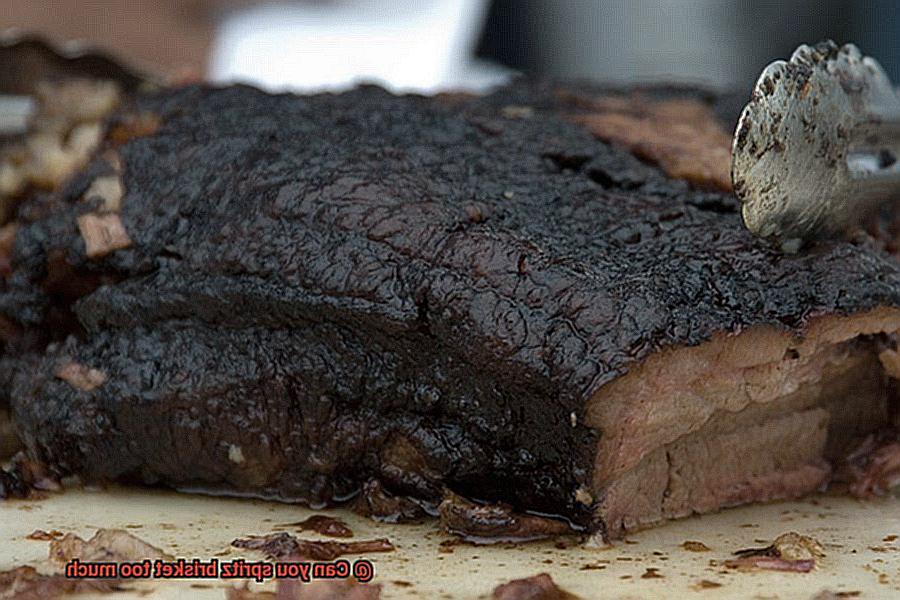
Today, we’re diving into the impact of excessive spritzing on cooking time, uncovering the secrets to achieving that mouthwatering brisket without adding unnecessary minutes to your cook. So grab your aprons and let’s explore the science behind the sizzle.
Spritzing, the act of misting or spraying liquid onto the surface of your meat, is a fantastic way to infuse flavor and keep your brisket juicy. However, too much spritzing can actually prolong your cooking time. Let’s break it down.
First, excessive spritzing can cool down the surface of your brisket. Picture this: you’re grilling away, spritzing like a pro, but each burst of liquid evaporates and steals precious heat from the meat. Before you know it, your brisket is shivering in the cold and cooking time goes out the window. Remember, moderation is key to maintaining that perfect temperature.
Next, creating a barrier. Continuously spraying liquid onto your brisket forms a protective layer that acts as an insulator against heat. Sounds counterintuitive, right? That’s because it is. This barrier prevents the delicious heat from evenly penetrating the meat, resulting in longer cooking times and an unevenly cooked brisket. Let’s avoid that disappointment.
Lastly, temperature fluctuations. Excessive spritzing can cause sudden bursts of steam, creating havoc with the temperature inside your grill or smoker. These fluctuations can throw off your cooking time and leave you with inconsistent results. So keep it steady and consistent, my friends.
To sum it up, spritzing is a powerful technique for keeping your brisket moist and flavorful. However, excessive spritzing can extend cooking time and compromise the quality of your masterpiece. Find that sweet spot – spritz periodically rather than excessively to ensure an evenly cooked brisket within a reasonable timeframe.
What Types of Liquids Can Be Used for Spritzing?
If you’re looking to take your barbecue game to the next level, spritzing is a technique you won’t want to miss. But what types of liquids can you use for spritzing? Let’s dive in and explore some exhilarating options.
Apple Juice: A Sweet Twist
If you’re longing for that touch of sweetness in your brisket, apple juice is the way to go. When spritzed on the meat, the natural sugars in apple juice caramelize, creating a delicious glaze that tantalizes both the eyes and taste buds. As the sweet juices mingle with the smoky flavors, your palate will be treated to an enchanting combination that will leave you craving more.
Beef Broth or Stock: Unleashing Richness
For those who crave a meaty flavor explosion, beef broth or stock is your secret weapon. This liquid adds depth and richness to your brisket, taking it to new heights of deliciousness. Imagine sinking your teeth into tender meat infused with savory goodness – it’s like experiencing pure bliss in every bite.
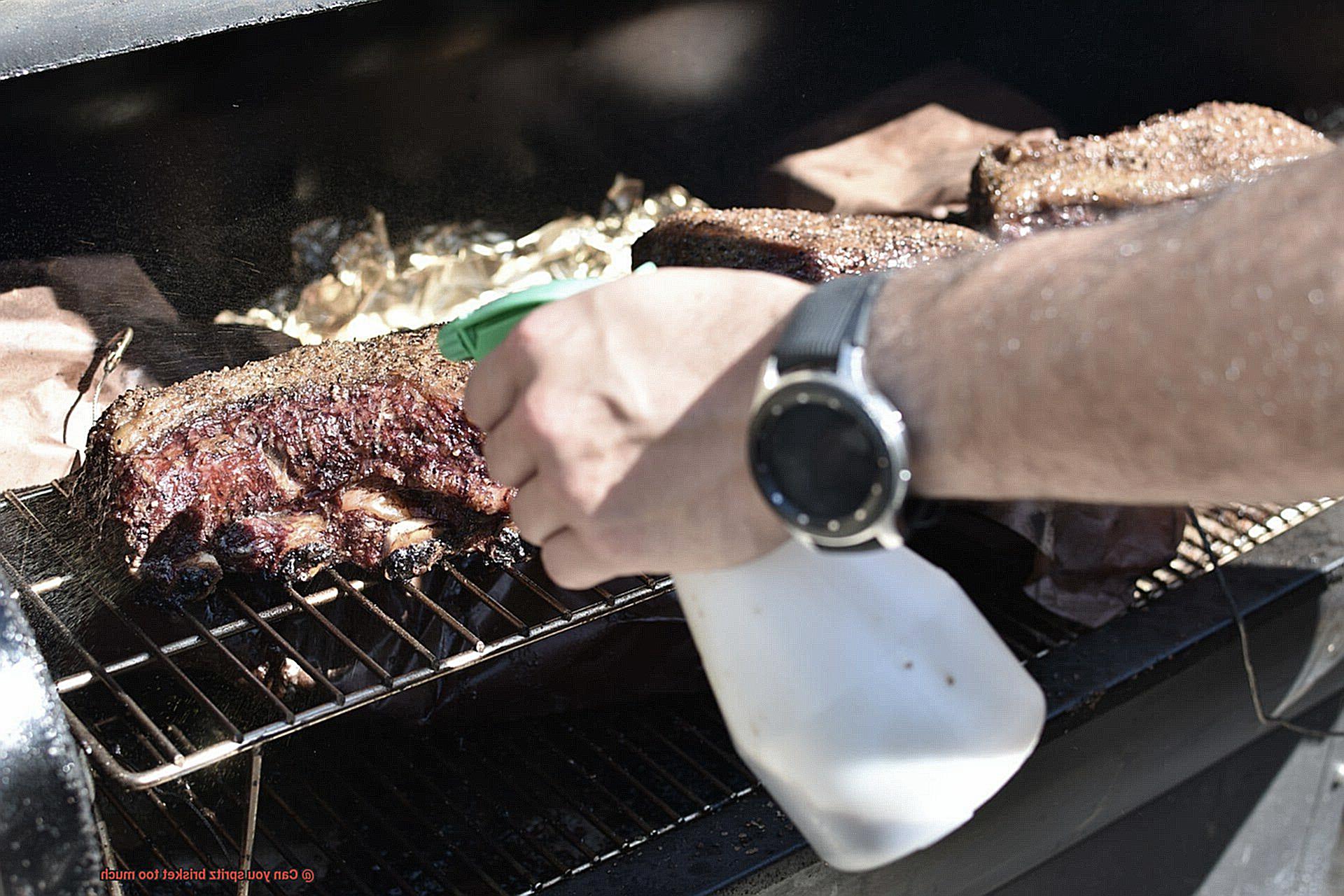
Vinegar-Based Liquids: The Tangy Twist
If you enjoy a tangy and slightly acidic flavor profile, vinegar-based liquids are the answer. Whether it’s apple cider vinegar, white wine vinegar, or even balsamic vinegar, these liquids add a pleasant tartness that dances on your tongue. Not only do they provide a delightful tang, but they also help tenderize the meat, making it melt-in-your-mouth tender.
Beer: The Bold Buddy
For those adventurous souls seeking to push the boundaries of flavor, why not spritz your brisket with beer? The effervescence and complex flavors in beer help break down connective tissues in the meat, resulting in a more tender and flavorful outcome. Plus, depending on the type and style of beer you choose, you can add unique hoppy or malty notes to your brisket that will leave everyone wanting more.
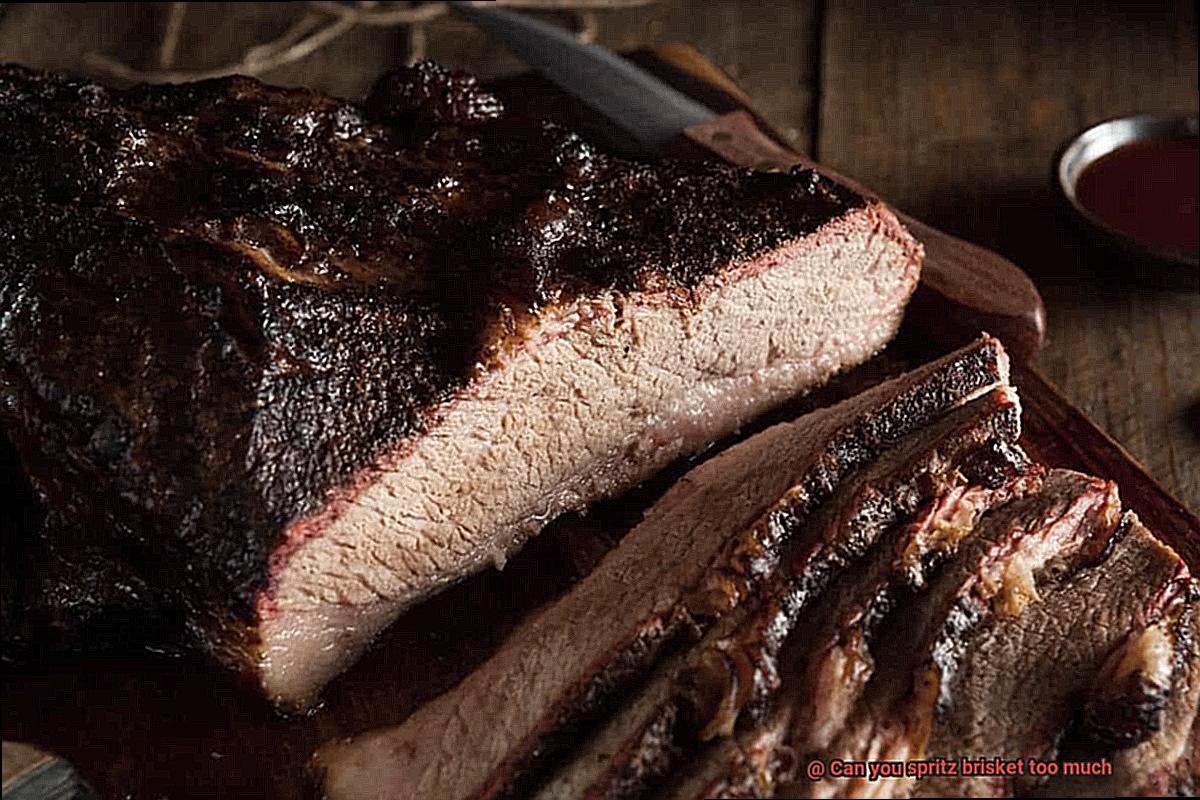
Citrus Juices: A Zesty Surprise
If you’re looking to add a burst of freshness and brightness to your brisket, citrus juices are your go-to. Whether it’s the vibrant tang of orange, the zesty kick of lemon, or the tangy twist of lime, these juices provide a refreshing balance to the richness of the meat. The acidity in citrus juices also aids in tenderizing the brisket, creating a tantalizing combination of flavors that will transport your taste buds to new heights.
Finding the Right Balance Between Moisture and Bark Development
The art of finding the perfect balance between moisture and bark development when spritzing brisket for grilling is a delicate dance. It’s a culinary tightrope walk, requiring a deep understanding of meat cooking science and a touch of intuition. But fear not, fellow grill masters, for in this blog post, we will unlock the secrets to achieving that mouthwatering brisket you’ve been dreaming of.
First and foremost, let’s talk about the purpose of spritzing. It’s not just about keeping the meat moist, although that is certainly an important factor. Spritzing also serves to regulate temperature and enhance flavor. As the liquid evaporates on the sizzling surface of the meat, it cools it down, preventing it from cooking too quickly. This slow and steady cooking allows for better smoke absorption and results in melt-in-your-mouth tender meat.
Now that we understand the why, let’s dive into the how. Finding your spritzing rhythm is crucial. You want to maintain moisture without drowning your brisket in liquid. Too much spritzing can leave you with a soggy surface that hinders bark development. Aim to spritz every 30 minutes to an hour, depending on variables like temperature, humidity, and personal preference. It’s all about finding that sweet spot.
But what about the liquid itself? While water is a classic choice for spritzing, don’t be afraid to get creative. Apple juice, beef broth, or even a splash of beer can add depth and complexity to your brisket’s flavor profile. Just remember to use these flavorful liquids in moderation so as not to overpower the natural taste of the meat.
Now, let’s talk desired outcome. Do you crave a thick, caramelized bark that adds a satisfying crunch to each bite? Or are you more partial to a softer, more tender exterior? The amount of spritzing you do will depend on your desired outcome. If you’re aiming for a thick bark, reduce the frequency of spritzing towards the end of the cooking process. This will allow the surface to dry out slightly, creating that coveted crust.
Remember, finding the right balance between moisture and bark development is an art, not an exact science. It requires practice and experimentation. Don’t be afraid to try different techniques and adjust your spritzing routine until you find the perfect balance that suits your preferences. So fire up that grill, grab your spritzing bottle, and get ready to impress your friends and family with a perfectly balanced brisket that will have them begging for seconds.
Understanding the Impact of Alternative Liquids on Flavor Profile
Get ready to dive into the world of alternative liquids and discover their impact on the flavor profile of your favorite cut of meat. Spritzing is an essential part of the cooking process, so let’s explore some exciting options that will have your taste buds dancing with delight.
First up, we have beer – yes, beer. This magical liquid can add a whole new dimension to your brisket. Imagine a rich and malty flavor infusing every bite, with just a subtle hint of bitterness from the hops. Talk about taking your taste buds on a wild ride.
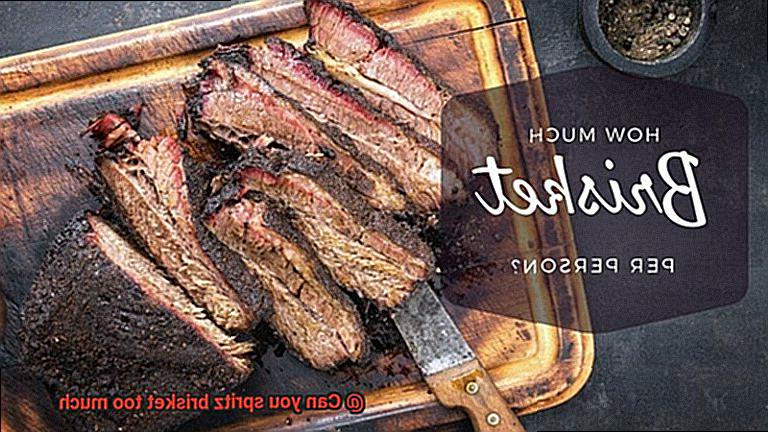
Looking for something sweeter and tangier? Fruit juices are the way to go. Pineapple or orange juice can work wonders on your brisket, adding a refreshing citrusy note that perfectly balances out the rich beef flavors. Plus, the natural enzymes in these juices help tenderize the meat, resulting in a melt-in-your-mouth texture that will have everyone begging for seconds.
For those who crave a savory twist, broth or stock is the answer. Beef or chicken broth will infuse your brisket with savory goodness and enhance its overall taste. Just imagine sinking your teeth into tender meat that’s been simmering in a bath of rich and flavorful broth – it’s like heaven on a plate.
Before you go wild with experimentation, consider how these alternative liquids will interact with your rubs and seasonings. You want the flavors to complement each other, not overpower one another. So take your time, play around with different combinations, and find that perfect spritzing liquid that will make your brisket shine.
Maintaining Consistent Cooking Temperatures to Avoid Overcooking
Prepare yourself for a sizzling adventure into the world of maintaining consistent cooking temperatures. Today, we unveil the secret to achieving brisket perfection – tender, juicy, and bursting with flavor. Get ready to elevate your grilling game as we explore the importance of temperature consistency, reliable thermometers, minimizing lid openings, using heat diffusers or water pans, managing fuel, and considering weather conditions. Are you ready to embark on this flavorful journey? Let’s dive in.
Why Consistency Matters:
Maintaining consistent cooking temperatures is crucial when it comes to avoiding the dreaded overcooked brisket. We all know that brisket is a tough cut of meat that requires low and slow cooking. Consistency ensures that the connective tissues in the brisket break down slowly and evenly, resulting in that melt-in-your-mouth tenderness we all crave.
The Power of a Reliable Thermometer:
Investing in a reliable and accurate thermometer is a game-changer. It allows you to monitor the internal temperature of your brisket throughout the cooking process. Aim for a low and steady temperature between 225°F to 250°F (107°C to 121°C), depending on your recipe or personal preference.
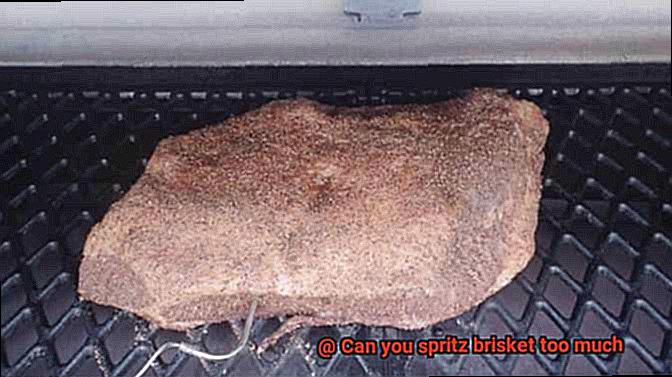
Minimize Lid Openings for Maximum Results:
Each time you open the grill or smoker lid, heat escapes, causing temperature fluctuations. Resist the urge to peek too often to avoid overcooking or drying out your brisket. Only open the lid when necessary, such as when adding wood chips or checking the internal temperature.
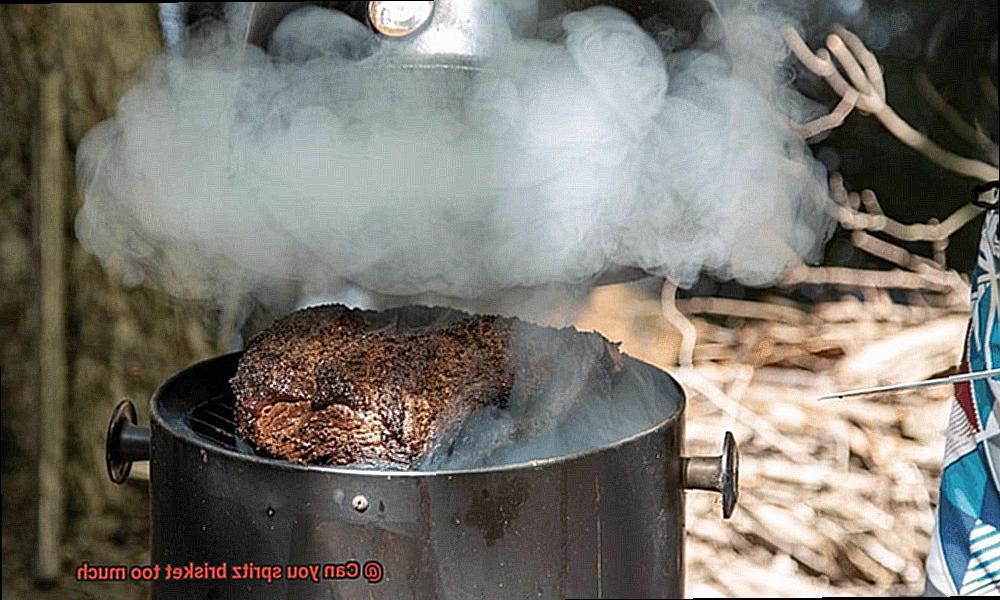
Heat Diffusers and Water Pans:
To ensure even cooking, consider using a heat diffuser or water pan. A heat diffuser helps distribute heat evenly, eliminating hot spots that can lead to uneven cooking. Placing a water pan in your grill or smoker regulates temperature and adds moisture, preventing your brisket from drying out.
Fuel Management: The Key to Consistency:
Proper fuel management is essential for maintaining consistent cooking temperatures. Whether you use charcoal, wood, or a gas grill, ensure a steady supply of fuel throughout the cooking process. Monitor fuel levels and make adjustments as needed to maintain the desired heat source.
Weather Conditions: Nature’s Influence:
Nature can have a significant impact on your cooking temperatures. Extreme heat, cold, wind, or rain can make it challenging to maintain consistency. If possible, choose a day with mild weather conditions to have better control over the cooking process.
Conclusion
Spritzing brisket is a delicate art. It’s all about finding that perfect balance of moisture and flavor. But can you overdo it? Can you spritz brisket too much? The answer, my friends, is a resounding yes.
Imagine this: you’ve spent hours tending to your beautiful brisket, carefully seasoning and smoking it to perfection. You’re excited to sink your teeth into that juicy, tender meat. But wait. You decide to spritz it one more time, just for good measure. And then again. And again.
Suddenly, your once glorious creation is drowning in a sea of liquid. The flavors become diluted, the bark loses its crispiness, and all that hard work goes down the drain (literally). Too much spritzing can turn your brisket from a mouthwatering masterpiece into a soggy disappointment.
You see, spritzing serves two main purposes: adding moisture and enhancing flavor. When done in moderation, it can help keep the meat moist while imparting a subtle hint of whatever liquid you choose to spritz with – be it apple juice, vinegar, or even beer. But when you go overboard with the spritzer bottle, you risk overwhelming the meat with excessive moisture and diluting those precious flavors you worked so hard to develop.
So how do you find that sweet spot? It’s all about timing and restraint. Spritz sparingly throughout the cooking process – maybe every hour or so – ensuring that each spray adds just enough moisture without drowning the meat. This way, you’ll retain those delicious flavors while still keeping your brisket tender and succulent.
In conclusion, while spritzing can be a valuable tool in your brisket-cooking arsenal, it’s crucial not to go overboard. Too much spritzing can ruin all your efforts and leave you with a lackluster end result. So remember: less is often more when it comes to spritzing brisket.

